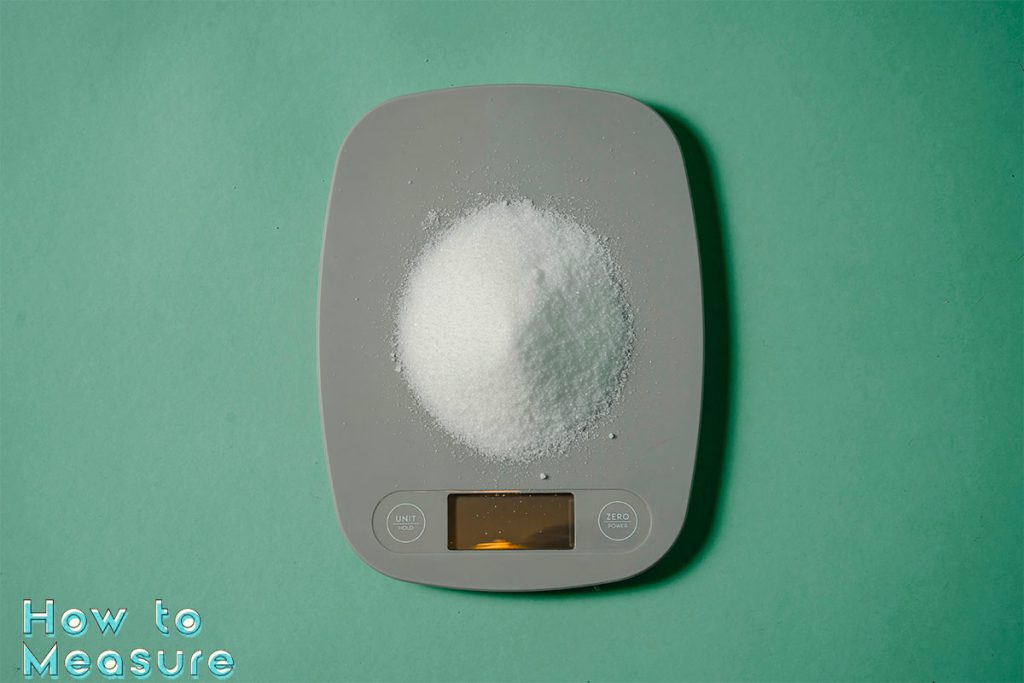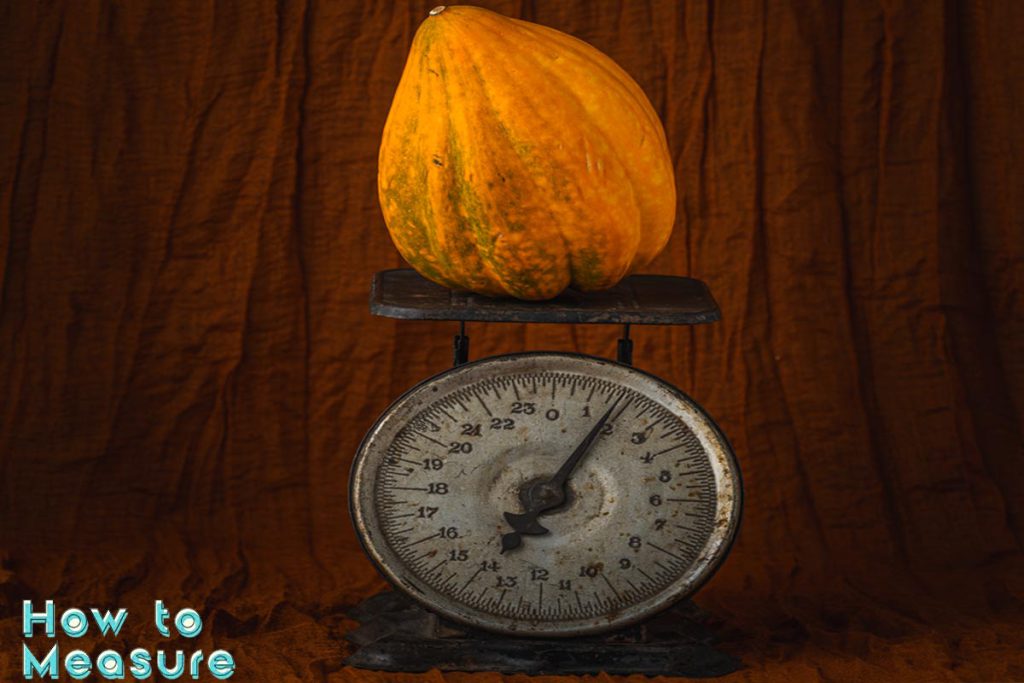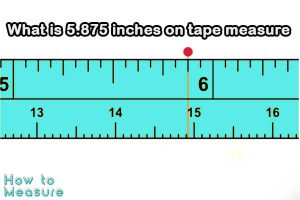Maintaining a healthy diet is an essential part of living a healthy lifestyle. Measuring your calorie intake is critical to achieving your health and fitness goals. This article on How to Measure will explore the basics of calorie intake, including calculating your calorie needs, tracking your information, and planning meals that meet your needs. We will also discuss macronutrient intake, portion control, calorie-counting apps, and healthy eating tips. With this information, you can develop a plan that works for you and your lifestyle.
Calorie Intake Requirements
Calorie intake requirements are essential for maintaining a healthy lifestyle. Knowing how many calories you need to consume each day can help you plan meals and snacks that are nutritious and satisfying. When measuring calorie intake, it is essential to understand the basics of calorie counting and how to track your information.
Calorie intake requirements vary from person to person depending on age, gender, activity level, and other factors. Generally, the average adult needs between 1,600 and 2,400 calories daily to maintain a healthy weight. You can use an online calculator or speak to a nutritionist to determine your specific calorie needs.
Calculating calorie intake involves determining how many calories you must consume daily to reach your goals. This includes considering your activity level, age, gender, and other factors. You can use an online calculator or speak to a nutritionist to calculate your calorie intake.
Once you know your calorie intake requirements, it is essential to track your intake to ensure you are meeting your goals. This can be done by keeping a food diary or using a calorie-counting app. These tools can help you track your calorie intake and ensure you consume the right calories daily.

In addition to tracking your calorie intake, it is essential to consider macronutrient intake. Macronutrients are the three primary nutrients found in food: carbohydrates, proteins, and fats. Each macronutrient provides a different number of calories per gram, so it is essential to understand how to balance your intake.
Meal planning is also an essential part of measuring calorie intake. Meal planning involves planning your meals and snacks to ensure you consume the right calories daily. This can help you get the right balance of macronutrients and avoid unhealthy foods.
Portion control is also an essential part of measuring calorie intake. Portion control involves controlling the amount of food you eat at each meal or snack. This can help ensure you are not overeating and consuming too many calories.
Calorie-counting apps can also be a helpful tool for measuring calorie intake. These apps can help you track your calorie intake and ensure you consume the right calories daily.
Finally, it is essential to remember that healthy eating is critical to measuring calorie intake. Eating a balanced diet with plenty of fruits, vegetables, whole grains, and lean proteins can help you meet your calorie intake goals.
Measuring calorie intake is an essential part of maintaining a healthy lifestyle. Knowing your calorie intake requirements, tracking your information, and understanding macronutrient intake can help you consume the right calories daily. Additionally, meal planning, portion control, and calorie counting apps can help you stay on track. Finally, healthy eating is essential for meeting your calorie intake goals.
Calculating Calorie Intake
Calculating calorie intake is essential in managing your diet and achieving your health and fitness goals. Knowing how many calories you need daily is vital to creating a balanced diet to help you reach your goals. Several methods for calculating your calorie intake include using a calorie calculator, tracking your food intake, and using a journal.
When calculating your calorie intake, it is essential to consider your age, gender, height, weight, and activity level. A calorie calculator can help you determine how many calories you need daily. This calculator takes into account your age, gender, height, weight, and activity level to provide an estimate of your daily calorie needs.
Tracking your food intake is another way to calculate your calorie intake. By keeping track of the foods you eat, you can get an accurate picture of how many calories you consume each day. You can use a food journal or an app to track your food intake.
A food journal is also a great way to calculate your calorie intake. A food journal allows you to record the foods you eat, the portion sizes, and the number of calories in each food. This information can help you accurately picture your daily calorie intake.
Calculating your calorie intake can create a balanced diet to help you reach your health and fitness goals. Whether you use a calorie calculator, track your food intake, or use a food journal, calculating your calorie intake is essential in managing your diet.
Calorie Intake Tracking
Tracking your calorie intake is an essential part of measuring your calorie intake. It helps you to understand how much you are consuming and if you are meeting your calorie requirements. Several ways to track your calorie intake include using a food diary, calorie counting apps, and following your macronutrient intake.
Food Diary: Keeping a food diary is a great way to track your calorie intake. It allows you to record what you eat and the portion sizes to easily calculate your calorie intake.
Calorie Counting Apps: Many calorie-counting apps can help you track your calorie intake. These apps allow you to enter the foods you eat and the portion sizes quickly, and they will calculate your total calorie intake.
Macronutrient Intake: Tracking your macronutrient intake is another way to measure your calorie intake. Macronutrients are the three main types of nutrients: carbohydrates, proteins, and fats. By tracking your macronutrient intake, you can ensure you get the right balance of nutrients in your diet.
Meal Planning: Meal planning is a great way to ensure you meet your calorie requirements. Meal planning allows you to plan out your meals in advance, so you can easily calculate the calorie content of each meal.
Portion Control: Portion control is essential in measuring your calorie intake. Eating smaller portions can help you control your calorie intake and prevent overeating.
Calorie Counting Apps: Many calorie-counting apps can help you track your calorie intake. These apps allow you to enter the foods you eat and the portion sizes quickly, and they will calculate your total calorie intake.

Healthy Eating Tips: Eating a healthy diet is essential in measuring calorie intake. Eating a balanced diet with plenty of fruits, vegetables, whole grains, and lean proteins can help you meet your calorie requirements.
Measuring your calorie intake is an essential part of maintaining a healthy lifestyle. Tracking your calorie intake, calculating your calorie intake, tracking your macronutrient intake, meal planning, portion control, and using calorie counting apps can all help you to measure your calorie intake and ensure that you are meeting your calorie requirements. Additionally, eating a healthy diet and following healthy eating tips can help you to maintain a healthy weight and meet your calorie requirements.
Macronutrient Intake in How to Measure Calorie Intake?
Measuring your calorie intake is an essential part of maintaining a healthy lifestyle. Knowing how many calories you should consume each day and how to track your information is necessary for achieving your goals. One crucial factor to consider when measuring your calorie intake is macronutrient intake. Macronutrients are the three main components of food: carbohydrates, proteins, and fats. Each macronutrient provides a different amount of energy and has other effects on your body. Understanding how each macronutrient affects your body and how to balance them in your diet is essential.
Carbohydrates are the body’s primary energy source and should make up most of your calorie intake. They are found in grains, fruits, vegetables, and dairy products. Carbohydrates are broken down into glucose, which the body uses for energy. Eating too many carbohydrates can lead to weight gain, so it is essential to monitor your intake.
Proteins are essential for building and repairing muscle tissue. They are found in meat, fish, eggs, dairy products, and legumes. Overeating protein can lead to weight gain, so it is essential to monitor your intake.
Fats are essential for the body, provide energy, and help absorb specific vitamins and minerals. They are found in nuts, seeds, avocados, and oils. Overeating fat can lead to weight gain, so it is essential to monitor your intake.
When measuring your calorie intake, it is essential to consider the macronutrient content of the foods you are eating. Aim to have a balanced diet with various foods from each macronutrient group. This will help you get the right energy and nutrients to meet your goals.
Meal Planning
Meal Planning is an integral part of measuring calorie intake. Planning meals can help you get the right calories for your body. When planning meals, it is essential to consider the number of calories in each food item and the nutritional value of the food. It would help if you also thought about the time available to prepare meals.
When planning meals, it is essential to consider the number of calories in each food item. This can be done by looking at the nutrition label on the food item or by using a calorie-counting app. It is also essential to consider the nutritional value of the food. This can be done by looking at the ingredients list and researching the nutritional value of each ingredient.
Once you have determined the number of calories in each food item, you can begin to plan your meals. It would help if you aimed to create balanced meals that provide the right amount of calories for your body. It would help if you also considered the time available to prepare meals. If you have limited time, consider pre-made meals or meals that can be prepared quickly.

Meal planning can also help you to control your portion sizes. By planning meals ahead of time, you can ensure that you are not overeating. This can help you to maintain a healthy weight and prevent weight gain.
By planning meals ahead of time, you can ensure that you are getting the right amount of calories for your body. Meal planning can also help you to control your portion sizes and prevent weight gain. By considering the number of calories in each food item and the nutritional value of the food, you can create balanced meals that will help you to measure your calorie intake.
Portion Control
Portion control is an integral part of measuring calorie intake. By controlling your food intake, you can better monitor your calorie intake and ensure you get the proper nutrients for your body. Portion control helps you avoid overeating and ensures you get the right calories for your needs.
When it comes to portion control, it is essential to remember that the size of your portions should be based on your individual needs. For example, if you are trying to lose weight, you may need to eat smaller pieces than someone trying to maintain weight. The type of food you eat can also affect the size of your portions. For example, foods high in calories, such as processed foods, may require smaller amounts than healthier foods, such as fruits and vegetables.
When measuring your portions, it is vital to use measuring cups and spoons to ensure you get the right amount of food. Additionally, paying attention to the serving size listed on food labels is essential. This will help you determine how much food you should eat.
In addition to measuring your portions, it is also essential to be mindful of the types of food you are eating. Eating healthy foods can help you meet your calorie intake goals and get the proper nutrients. Additionally, limiting the amount of processed and sugary foods you eat is essential.
Portion control is integral to measuring calorie intake and ensuring you get the proper nutrients for your body. By paying attention to the size of your portions and the types of food you eat, you can better monitor your calorie intake and ensure you get the right amount of calories for your needs.
Calorie Counting Apps
Calorie-counting apps are a great way to measure calorie intake and stay on track with your nutrition goals. These apps allow you to track your daily food intake and calculate your daily calorie intake. Many apps provide helpful features like meal planning, portion control, and macronutrient tracking. Calorie-counting apps are an easy and convenient way to keep track of your daily calorie intake and ensure you eat a balanced diet.
Healthy Eating Tips
When measuring calorie intake, focusing on healthy eating habits is essential. Eating healthy foods in the right portions can help you reach your calorie goals. Here are some tips to help you eat healthier:
- Eat a variety of foods. Eating fruits, vegetables, lean proteins, whole grains, and healthy fats can help you get the necessary nutrients.
- Limit processed foods. Processed foods are often high in calories and low in nutrients. Limit your processed food intake and opt for fresh, whole foods instead.
- Choose healthy snacks. Snacking can help you stay full and energized throughout the day. Choose snacks high in fiber and protein, such as nuts, seeds, and fresh fruit.
- Drink plenty of water. Staying hydrated is essential for your overall health. Drinking water can also help you feel full and reduce your cravings for unhealthy foods.

- Cook at home. Cooking at home can help you control your calorie intake. You can also experiment with new recipes and ingredients to make healthy meals.
- Get active. Exercise can help you burn calories and improve your overall health. Aim for at least 30 minutes of physical activity each day. Following these tips, you can measure your calorie intake and ensure a healthy, balanced diet.
Conclusion
In conclusion, measuring calorie intake is critical to maintaining a healthy diet and lifestyle. Calorie intake measures the energy value of the food we eat, and monitoring it can help us achieve weight goals and promote overall health. Various methods can measure calorie intake, including food diaries, calorie-counting apps, and food scales. These tools can be used to keep track of the number of calories consumed daily and help identify sources of excess calories. However, it’s essential to note that not all calories are created equal, and consuming healthy, nutrient-dense foods is as crucial as calorie intake. Therefore, it’s necessary to have a balanced and individualized calorie intake plan, considering factors such as age, sex, physical activity, and individual metabolism. Consultation with a qualified nutritionist or healthcare professional may provide valuable guidance on an appropriate calorie intake plan tailored to individual needs and health goals.











